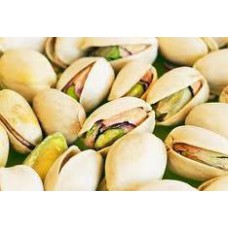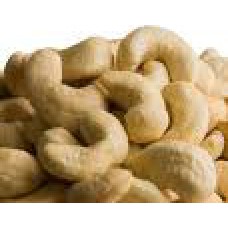Nutrition–Pistachios are a good source of copper, phosphorus, potassium, magnesium, and B6. The nuts deliver 30 vitamins, minerals, and phyto-nutrients, so they pack a considerable wallop from a nutritional standpoint.
-
- Fiber–Pistachios contain fiber. Lots of it! Pistachios, in fact, contain higher amounts of fiber than many high-fiber foods. If you are trying to boost your fiber intake, pistachios are an excellent choice.
- Protein–Looking to replace animal protein with vegetable protein? Pistachios, eaten in conjunction with protein-rich grains, vegetables, and fruits, can be a good source of vegetable protein.
- Antioxidants–Oxidative stress can cause damage to the human body, resulting in development of diseases such as cancer and heart disease. Dietary antioxidants help to reduce the damage. Pistachios contain phenolic compounds, which are believed to account for the antioxidant capability of certain foods. The pistachio nut is placed in the highest group for antioxidants.
- Carotenoids–Pistachios contain significant amounts of the carotenoids lutein and zeaxanthin. These carotenoids have been linked to reduced risk of developing macular degeneration, a condition that results in blindness for aging Americans.
- Phytosterols–Pistachios are also rich in plant sterols. Research suggests that phytosterols may lower the absorption of dietary cholesterol from other foods. Plant sterols are now being added to foods because of this beneficial effect. A study published in the Journal of Agricultural and Food Chemistry reported on a comparison of 27 nut and seed varieties for phytosterol content.
INGREDIENTS:
Pistachios
NUTRITIONAL INFORMATION:
Typical analysis, to be used as a guide only:
| Ave/50g | Ave/100g | |
| Energy | 1166 kJ | 2332 kJ |
| Protein | 10.3 g | 20.6 g |
| Fat Total | 22.2 g | 44.4 g |
| – Saturated | 2.7 g | 5.4 g |
| Carbohydrates | 14.0 g | 28.0 g |
| – Sugars | 3.8 g | 7.6 g |
| Sodium | 1 mg | 1 mg |







Reviews
There are no reviews yet.